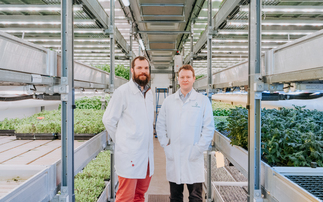In 2010 Nestlé made a public commitment to have no association with deforestation - Benjamin Ware, Nestlé’s manager of responsible sourcing, explains how the multinational is working towards that goal
Our first step was recognising that we needed to change the way we sourced our palm oil. Then we realised how complex the task was. There were many variables to consider: the palm oil, the surrounding environment, and the communities living and working within it. Then there's the palm oil supply chain itself, which is extremely complicated, involving palm oil suppliers, growers, mills, processors, traders and refiners.
We started working with TFT (The Forest Trust) in 2010. They helped us to identify and formalise what we wanted our palm oil to be and this allowed us to define our Responsible Sourcing Guideline (RSG) for palm oil. Our guideline goes beyond certification. We didn't want to put a limit on ourselves - we wanted to take full ownership of our palm oil sourcing.
TFT told us that we could only change what we could see, so first we had to know where our palm oil was coming from. We needed to map our supply chain. That might sound obvious, but it's important to put it into context. Back then some within the industry were sceptical and said that we didn't have the leverage, that doing so was impossible. It was a natural enough reaction. We were doing something new, which means stepping into the unknown. This is exactly what we did when we mapped our supply chain.
This helped us to learn, creating and piloting simple solutions to capture supply chain information. We introduced a traceability declaration document to assist suppliers to self-declare information about the supply chain. We found that suppliers were able to develop traceability beyond small and expensive segregated supply chains.
This put our suppliers in new territory. What if they couldn't meet our standards? We were prepared to support them. The main thing was that they were willing. Working with our suppliers helped us to build a greater depth of knowledge and transparency of our palm oil supply chains. Instead of relying on certification, building traceability into our supply chain had created a space for us to work with suppliers to innovate and be proactive.
Our suppliers vary hugely in size, from big importers to smallholder farmers with a few hectares. So again, we needed to provide tailored solutions to help them. TFT supported us, identifying opportunities in the field. Take palm kernel oil (PKO) as an example. Unlike palm oil, which comes from the palm fruit, PKO is derived from the palm seed. Traceability to known mills and plantations is difficult because the kernels are traded across countries or over regional borders before being crushed into oil. PKO production is significantly lower than palm oil, accounting for around only 10 per cent of palm oil annually. So proportionately there are fewer kernel crushing mills than there are palm oil mills. This makes identification a bigger challenge.
In Malaysia, we've been working with one of our largest suppliers and TFT to establish a traceable supply chain that is assessed against our guideline. We've completed a thorough mapping exercise to ensure we know the origin of the kernels. We are now working through an action plan to bring further support on the ground to growers, large and small, to improve practices to meet our guideline.
Smallholders are very important to us. We take a traceability approach that includes them. In northern Sumatra, Indonesia, another supplier has a supply chain that includes thousands of smallholders who own farms ranging from less than one hectare to 40 hectares. Many use fresh fruit dealers to get the oil to the mill. Our approach involves working with such dealers to map the origin of the fruit and to support smallholders to strengthen practices to meet our guideline. Over the coming years we will be putting further resources into our work with smallholders.
We continue to strive for further transparency on this journey and we're engaging with stakeholders to share challenges, opportunities and lessons learnt. As of September 2014, we were able to map back to palm oil mills for 55 per cent of our annual purchases, and 27 per cent is either compliant with our RSG, or is on the way to be, via an action plan.
The work to achieve this has been far from easy, but we're working hard and collaborating with others in our supply chain. There is still much to do, but it is this collaboration, rather than any one set methodology, which has produced results.
Benjamin Ware is manager of responsible sourcing at Nestlé
This article is part of the BusinessGreen Zero Deforestation Debate







